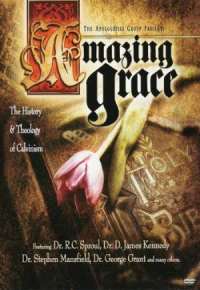I recently read the story of Joshua and the Battle of Jericho in the new kid’s Bible storybook I’ve been promoting. In that story I read these words:
Then God made his people a promise. “I will always be with you…. If you do what I say, your lives in the new land will be happy and everything will go well.”
So Joshua gathered his army together…. They were ready to fight. But the plan wasn’t about fighting; it was about trusting and doing what God said. (emphasis added, quote from The Jesus Storybook Bible by Sally Lloyd-Jones)
Canaan as a Type
These words spurred me to think about the battle of Jericho as it relates to the battle of our own personal sanctification. Christians for centuries have interpreted the story of Israel’s redemption and exodus form Egypt, their wandering in the desert, and their conquering the promised land in some kind of a spiritual sense. Scripture certainly presents Jesus as the archetypal Passover Lamb. The misadventures of Israel in the wilderness teach us spiritual lessons (1 Cor. 10). And the promised land is a type of Abraham’s “better” and “heavenly” country which he sought (Heb. 11). Numerous hymns have also equated crossing the Jordan with entering our eternal rest.
Certainly a redemptive historical hermeneutic finds great significance in the story of the Israelites conquering the promised land. As my friend Nathan Pitchford has so clearly shown, the land of promise is intimately connected to fellowship with God. The land was to be the place where God would be Israel’s God and they would be His people. Fellowship was the goal of the land promise, even as later with David, God chose Jerusalem to be the city where His name would be. The OT covenants and promises became increasingly particularized and focused on the heir of David to be ultimately fulfilled with Christ.
All that is to say the possession of Canaan by the people of God was important because this land was to provide a restoration, in part, of Eden. It was to be a place where God communed with man in intimate fellowship. Such a place clearly typifies the abundant Christian life of a believer. A believer experiences fellowship with God which is truly a foretaste of heaven. Just as the land of Canaan ultimately points forward to the New Jerusalem and the New Earth (see Rev. 21), so the believer’s experience of life in Christ is the foretaste of the true essence of eternal life.
The Battle to Win Canaan
Now that we have established the typical significance of the land of Canaan, we are prepared to see how the battle of Jericho wonderfully instructs us. (And I grant I have not truly established it, rather I explained it. This post is not a full-fledged defense of the redemptive historical hermeneutic.) Before the Israelites could possess their inheritance, they had to conquer their foes. The battle of Jericho was the first fight to win the promised land, and it sets up what proves to be a pattern. The Israelites trust in God’s power to win each battle for them.
I hope you can see how this applies to us. In order for us to reach our inheritance — the ultimate promised land of heaven, we must trust in God to win our battles. In Jesus (the Captain of the Lord’s hosts) must be our trust. So with ultimate salvation, we must trust in God to undertake for us and win the battle.
 But this applies to our sanctification as well. For us to enjoy the abundant life in Christ, we must fight the flesh and engage our besetting sins. We must mortify sin (see John Owen’s excellent work On the Mortification of Sin, which is an exposition of Rom. 8:13). And how do we win the battles of sanctification? By trusting in God to win our battles for us, of course. We follow in Joshua’s footsteps.
But this applies to our sanctification as well. For us to enjoy the abundant life in Christ, we must fight the flesh and engage our besetting sins. We must mortify sin (see John Owen’s excellent work On the Mortification of Sin, which is an exposition of Rom. 8:13). And how do we win the battles of sanctification? By trusting in God to win our battles for us, of course. We follow in Joshua’s footsteps.
The Point of this Post
What most blessed me in thinking through all of this was an observation. Joshua and the army of Israel did not sit around on their hands and wait for the walls to fall down. They obeyed. Scripture repeatedly tells us that good works are the inevitable, even the required fruit of believers. (See my post Once Saved, Always Saved?!?!) If we are not obeying, we have good reason to be doubting our salvation.
Today, there are many who so stress the necessity of good works that they have redefined justification. They claim justification is based on our good works, yet they claim such works are only done through the Spirit, and so this position still qualifies as justification by faith.
Against the backdrop of this whole debate, the example of Jericho becomes all the more clear. If the Israelites had not obeyed by marching around the city, God would not have given them th evictory. Obedience is necessary. But obedience does not earn or obtain anything. It is only God’s grace which would topple the walls of Jericho. And certainly marching around the city did not do anything to earn the victory. God throwing the walls down earned the victory.
Conclusion
In conclusion, as we face the struggles of personal sanctification, let us take heart. God is fighting our battles for us. We do need to be faithful and march around the walls of the sins in our life. But ultimately God is the one who tears down those walls and gives us spiritual victory after spiritual victory. Just like it took many years for the Israelites to conquer all of Canaan, our own struggle for sanctification is a slow process. And like the Israelites, we will never expel all of our sins. We can, however, win a victory and live a life of victory (see Josh. 21:43-45). And when we do, it is not our obedience which has won anything. It is all by God’s grace and His fighting for us. The battle is indeed the Lord’s.
So let us seek to trust our Great Captain, and follow His lead in fighting our sin. To God be the glory, great things He has done, and will do!
(For similar posts, see My 219 Epiphany, parts 1 and 2; Once Saved, Always Saved?!?!; and Bitterness and Desire.)
Like this:
Like Loading...
![]()
 I haven’t yet featured this excellent resource on the study of Reformation Theology.
I haven’t yet featured this excellent resource on the study of Reformation Theology.  But this applies to our sanctification as well. For us to enjoy the abundant life in Christ, we must fight the flesh and engage our besetting sins. We must mortify sin (see John Owen’s excellent work On the Mortification of Sin, which is an exposition of Rom. 8:13). And how do we win the battles of sanctification? By trusting in God to win our battles for us, of course. We follow in Joshua’s footsteps.
But this applies to our sanctification as well. For us to enjoy the abundant life in Christ, we must fight the flesh and engage our besetting sins. We must mortify sin (see John Owen’s excellent work On the Mortification of Sin, which is an exposition of Rom. 8:13). And how do we win the battles of sanctification? By trusting in God to win our battles for us, of course. We follow in Joshua’s footsteps.